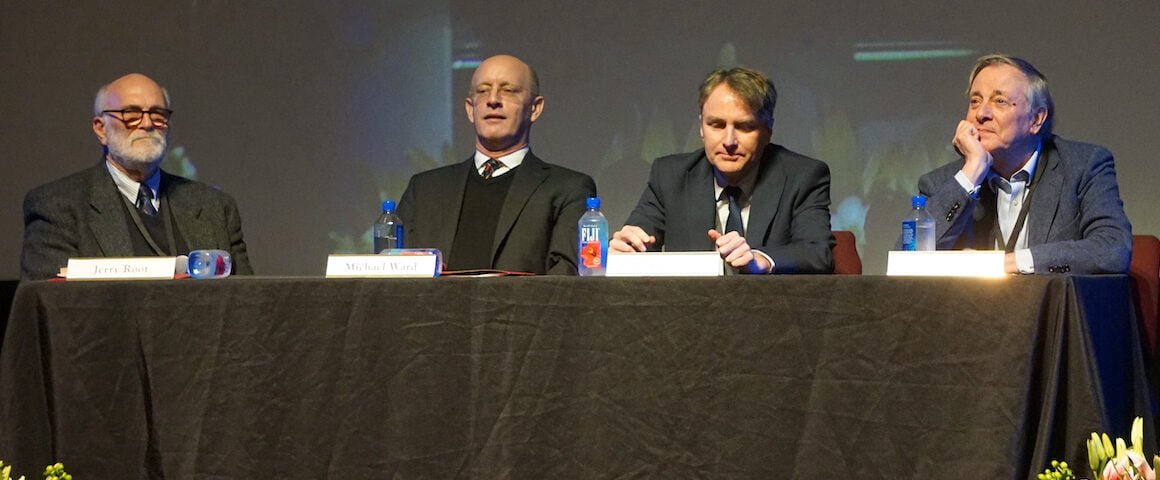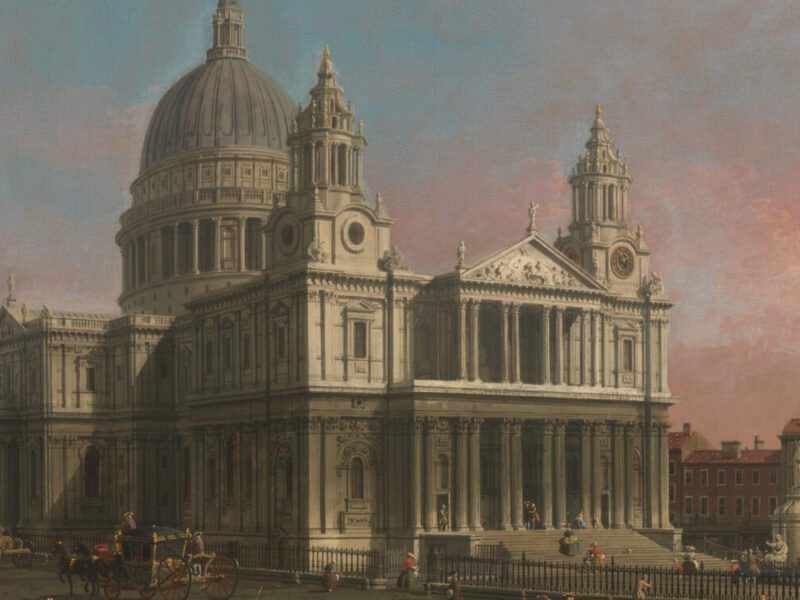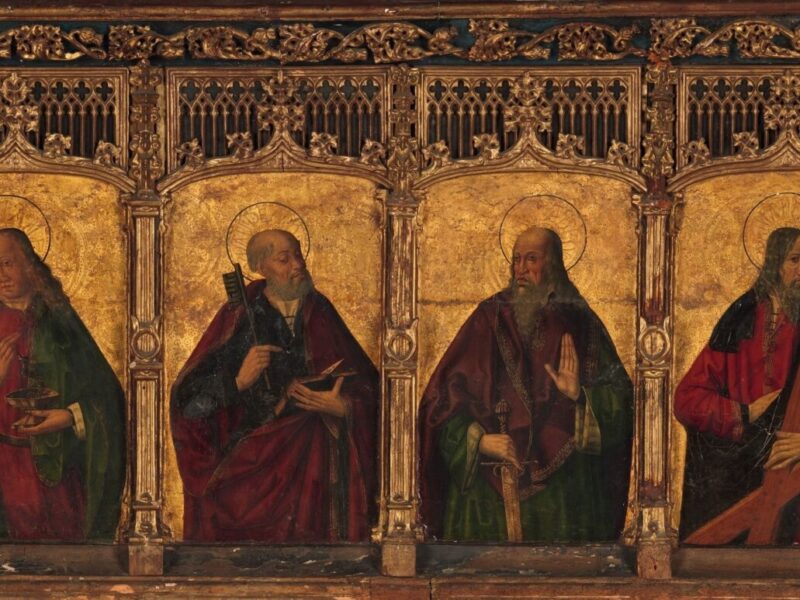“Learning To Tell More Beautiful Stories”
Charleston, South Carolina is one of the most beautiful cities in the United States—an old city with one of the most impressively preserved historical districts—in a country replete with depressing newness. No building on the peninsula exceeds the height of its famous church steeples, meaning that from any angle the most prominent towers are those set aside for the worship of Christ.
And the steeples themselves are spectacular. St. Phillips Anglican Cathedral is one of the oldest active church congregations in the United States, having formed in 1680 and playing host to great men like George Washington, George Whitefield, John Wesley, John Gadsden, and three Declaration of Independence signers who are buried on the church graveyard or at the neighboring St. Michael’s Anglican Church.
It is a city well-aged, well-trodden, and dedicated to the preservation of beauty—which makes it an appropriate place to host what proved to be one of the largest conferences on C.S. Lewis yet recorded in history—”Telling a More Beautiful Story: Lessons from C.S. Lewis on Reaching a Fractured World.”
And that is what it played host to this past weekend. The city hosted the first Mere Anglicanism Conference since 2016 at Charleston Music Hall over the weekend of January 27th. The conference originated in the 1990s with Virginia Theological Seminary’s Scholarly Engagement with Anglican Doctrine Conference (SEAD) but rapidly grew and shifted in the early 2000s. Up until the last conference, it regularly hosted sold-out crowds. Roughly 875 people flew or drove to this year’s conference.
“We’re hoping people are edified, blessed by hearing the speakers and equipped to go out and share a more beautiful story,” said event organizer and St. Phillips Rector Rev. Jeff Miller.
For a niche theology conference, the organizers outdid themselves in putting together the event. St. Michaels offered Daily Offices every morning and St. Phillips hosted an Eveningsong and two Eucharistic services, all with guest speakers. Westminster Press and Crossway Publishing had put out an incredible spread of new books in the upstairs passageway above the lobby and Charleston Coffee Roasters was kind enough to provide free coffee for the entire duration of the weekend.
Speaking for myself, I walked away with more books than I should’ve and less than I wanted.
It made for a tightly knit program, well organized with excellent presentations and moments of spiritual beauty and refreshment—albeit one that required about two miles of daily walking.
The program itself was a veritable who’s-who of modern Anglican and C.S. Lewis scholarship—Oxford Professor Dr. Alister McGrath, Oxford Professor Dr. Simon Horobin, Planet Narnia author Dr. Michael Ward, Wheaton College President Dr. Philip Ryken, former Wheaton College President Dr. Jerry Root, Wheaton College Professor Dr. John Dickson, apologist Dr. Amy Orr-Ewing, ACNA Archbishop Dr. Foley Beach, and Boston College Professor Dr. Peter Kreeft
It should be said though that for an Anglican conference, a conspicuous number of guests were subversives—Catholics (and Presbyterians). Thankfully, the subject matter of the sold-out conference meant more in this instance than any sectarian squabbles. Nearly 900 people were in attendance for all three days of the event and plenty of them were Southern Baptists and Romanists alike.
C.S. Lewis is one of the rarest figures in modern Christianity—a near totally unifying and beloved figure. Shy of a handful of extreme fundamentalists and progressives, Lewis is adored by Christians and thinkers of every stripe. His books can be found in the gift shops of megachurches and the decaying church libraries of Greek Orthodox Parishes alike—a status even St. Augustine doesn’t even hold.
“Lewis’s emphasis on core Christian doctrines and basic biblical truths has won him a wide following across Christendom. He gained this wide following by teaching the essence of the gospel without oversimplifying or overcomplicating,” noted Wheaton College President, Phillip Ryken.
This status makes him unique as an Anglican lay theologian, being more popular outside of his denomination than within and becoming in some ways what Ryken calls the “Augustine, Origen, and Aesop of Evangelicalism.” That is an impressive title for a man Dr. Alister McGrath sardonically remarks is only known as the “man who wrote about Wardrobes or something.”
McGrath summarized the core message of the conference well in his opening night speech, that in light of secular modernity, every Christian has a role in telling the story of faith. The world has been ensnared by a narrative, that of materialist progress, and it has left the world longing for a better story that is more beautiful, edifying, and meaningful than the one that teaches us that life is short, painful, and hardly worth living. Christianity offers such a story, and “each of us has a role to play in translating and applying the Christian faith,” says McGrath.
“Not only is C.S. Lewis interesting, but here is a way people who hear him can make a difference,” McGrath continues. “My opening speech was about empowering the audience. We have this legacy. We should take away encouragement from this event and realize there’s so much more to learn about him. This conference has shown us how much C.S. Lewis can offer the churches and how an accessible Orthodoxy can really bring the church back to life.”
Lewis offers a uniquely useful example of how to evangelize to the modern world, given his success in touching the lives of millions of people across the U.S. and Europe. And each of the speakers tapped into that, exploring the apocalyptic realities of modern life prophesied in Lewis’ Abolition of Man (Kreeft), the nature of grief and pain and our ability to touch the lives of others (Ewing), and the depth of Lewis’s understanding of Biblical truth (Ryken).
As Root pointed out better than anyone else, Lewis is a model for how we connect to others and we can use his worldview and ideas to connect to others—to tell better stories that teach people about Christ. During his lecture, he pointed out in to the audience and found an author named Steven Urban, a friend of his whom he had converted to Christianity through empathetic conversation, after years of being an atheist while dealing with personal tragedy. He has since written the Mere Christianity Study Guide.
“I hope the conference takes away a stronger love for biblical truth and a model for engaging Lewis with genuine charity and at the same time a willingness to recognize the shortcomings of even the best Christian thinkers,” says Ryken.
“It has exceeded my expectations. I hope people take away a fresh excitement about sharing the gospel with people they know and people they don’t know—being able to use the example of C.S. Lewis to share Christ in our world,” says Archbishop Foley.
Recordings of the sessions will be released on YouTube within the coming months.






'Conference Review: Mere Anglicanism 2023' have 4 comments
February 3, 2023 @ 1:01 pm Fr. Mark Perkins
Nice overview — wish I could have been there!
However, unless I’ve missed the latest and greatest innovation in liturgical renewal, I don’t think there’s any such thing as an “Evening Song Mass.” And “Eucharist Mass” is one of those “department of redundancy department” redundancies…
February 3, 2023 @ 2:11 pm Jesse Nigro
Oops, that slipped past the editor. Fixed now.
February 3, 2023 @ 2:13 pm Fr. Mark Perkins
I was waiting on pins and needs to see if it became a Eucharist or a Mass! (I kid.)
February 3, 2023 @ 1:30 pm The Rev. Sudduth Rea Cummings
Having attended previous Mere Anglicanism events, I understand about leaving with an armload of books!! Its easy to be beguiled into buying more than I could reasonably read!